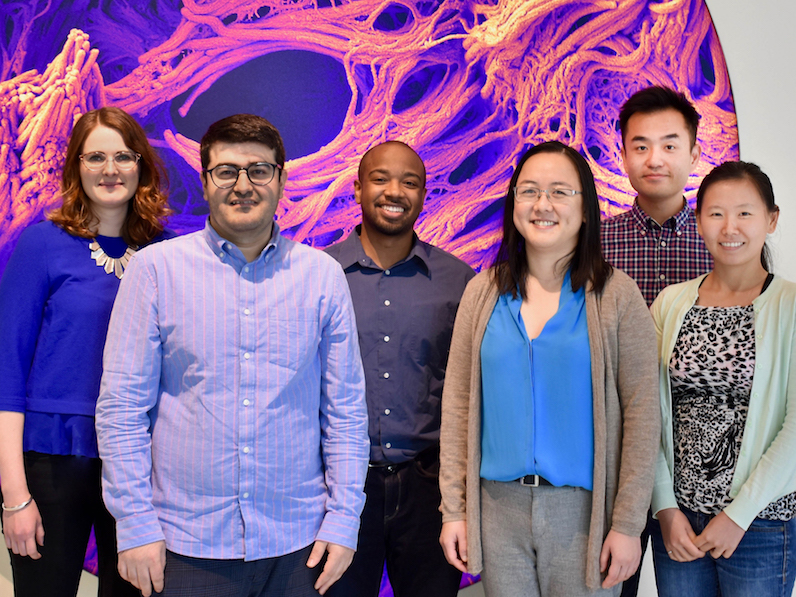2019-2020 CPCM Scholars (left to right): Julia Froese, Yetis Gultekin, Jason Conage-Pough, Yi Wen Kong, Yulong Su, Mary Mu
The CPCM Convergence Scholars for 2019-2020 are:
- Jason Conage-Pough, White Lab: Jason is researching critical vulnerabilities in cancer cells in order to improve therapeutic outcomes. He is using mass spectrometry to characterize dysregulated signaling in cancer by measuring cell signaling networks and the adaptive response of cancer cells to therapy.
- Julia Froese, Hemann Lab: Julia is researching key mediators of resistance or sensitivity to CAR-T cell therapy in the context of pancreatic ductal adenocarcinoma using a whole genome CRISPR screening approach.
- Yetis Gultekin, Vander Heiden Lab: Yetis is interested in understanding the molecular mechanisms that underlie the muscle wasting observed in patients with pancreatic ductal adenocarcinoma (PDAC). Using mouse models of the disease, he is testing the hypothesis that PDAC-derived secreted proteins or metabolites stimulate the autophagy-lysosome and the ubiquitin-proteasome systems in muscle cells to degrade proteins and cause muscle tissue loss.
- Yi Wen Kong, Yaffe Lab: The focus of Yi’s research is to identify and target drug-resistant pathways in both cancer cells and the tumor microenvironment in order to enhance current front-line chemotherapy. In addition, to effectively target drug resistance pathway, she is also interested in developing and utilizing siRNA-delivery platforms to deliver siRNAs safely and efficiently to tumors.
- Mary Mu, Manalis Lab: Mary is developing a platform based on the suspended microchannel resonator technology developed in the Manalis lab that can measure the masses of cell clusters, tumor spheroids, and organoids. She is interested in then applying this platform to assess drug response of patient samples.
- Yulong Su, Koehler Lab: In his research, Yulong is using the Koehler lab’s recently developed small chemical probe, KI-MS2-008, that can interrupt the protein network and functions associated with the oncogenic protein MYC. Yulong’s work focuses on studying the mechanisms underlying this discovery with the hope of developing novel strategies to target oncoproteins for degradation in cancer.

